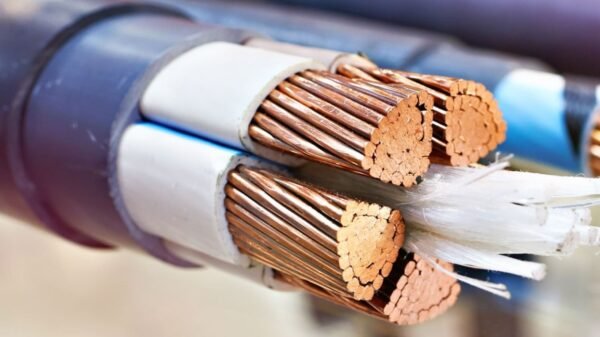Cables are an essential component in any electrical system, ensuring the smooth and efficient flow of electricity. Whether you’re setting up a new home, managing an industrial project, or upgrading existing infrastructure, selecting the right cable is critical to the success and safety of your operation. In this blog, we’ll guide you through the key factors to consider when choosing cables and introduce some popular types to help you make an informed decision.
Why Choosing the Right Cable Matters
The performance of an electrical system depends heavily on the quality and suitability of the cables used. Choosing the wrong type of cable can lead to:
• Electrical Failures: Overloading or overheating can damage equipment and cause disruptions.
• Safety Hazards: Poor-quality or unsuitable cables increase the risk of fire and electrical shocks.
• Increased Costs: Using the wrong cable can lead to frequent replacements, higher maintenance costs, and reduced energy efficiency.
Factors to Consider When Selecting Cables
1. Voltage Rating
Ensure the cable’s voltage rating matches your system’s requirements. Low-voltage cables are ideal for residential and light commercial use, while high-voltage cables are used in industrial or utility-scale installations.
2. Conductor Material
• Copper: Offers excellent conductivity, flexibility, and durability. Ideal for most applications.
• Aluminum: Lightweight and cost-effective, commonly used in large-scale power transmission.
3. Insulation Type
The insulation material determines the cable’s ability to withstand environmental factors:
• PVC: Flexible and suitable for general use.
• XLPE: Resistant to high temperatures and suitable for outdoor or underground installations.
• Rubber: Ideal for heavy-duty industrial applications.
4. Environmental Conditions
Consider whether the cable will be exposed to:
• Moisture: Waterproof or water-resistant cables are essential for outdoor or underground applications.
• Heat: High-temperature-resistant cables are needed for extreme environments.
• Chemicals: Use chemical-resistant cables in factories or harsh industrial settings.
5. Current-Carrying Capacity
Select a cable with a suitable cross-sectional area to handle the expected current without overheating.
6. Standards and Certifications
Always choose cables that meet international standards, such as IEC, UL, or regional certifications, to ensure safety and quality.
Common Types of Cables and Their Applications
1. Power Cables
Designed for transmitting electricity in residential, commercial, and industrial applications. These include low-voltage cables (below 1kV) and medium- to high-voltage cables for power grids.
2. Control Cables
Used for transmitting signals to control equipment. Often found in automation, machinery, and manufacturing industries.
3. Data Cables
Essential for transmitting digital signals, such as Ethernet cables for networking or fiber-optic cables for high-speed internet.
4. Flexible Cables
Used in mobile equipment and areas requiring frequent bending, such as robotics or portable tools.
5. Fire-Resistant Cables
Provide power even during a fire, ensuring critical systems like alarms and emergency lighting continue to function.
How to Maintain and Install Cables Properly
1. Proper Storage
Keep cables in a dry, cool area away from direct sunlight to prevent insulation degradation.
2. Professional Installation
Hire certified electricians to ensure proper installation and reduce the risk of mishaps.
3. Regular Inspection
Periodically check cables for signs of wear, such as cracks in insulation or exposed conductors, and replace them promptly.
The Benefits of Investing in High-Quality Cables
1. Reliability: High-quality cables ensure uninterrupted performance, reducing downtime.
2. Safety: Certified cables meet stringent safety standards, protecting people and equipment.
3. Cost Savings: Durable cables lower maintenance and replacement costs over time.
4. Energy Efficiency: Efficient cables reduce energy losses, saving money on electricity bills.
Partner with a Trusted Cable Supplier
At Lizhou Cable, we specialize in providing top-quality cables tailored to your needs. From residential wiring to industrial power solutions, we offer a wide range of certified cables that guarantee performance and safety.

